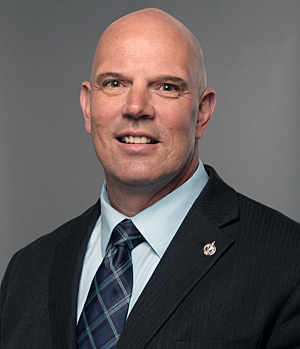
Conservative Party – Kootenay Columbia
The recent news coverage of Veterans Affairs office closures has created a lot of anger amongst Canadians. As my colleague MP Laurie Hawn, a retired Air Force veteran put it, “The fact is, we are caught in a love-hate relationship. People love to love soldiers, as they should and a lot of people love to hate government. That is reality.“
However, when one removes the emotion and deals with the facts, I believe that it reveals that the majority of veterans, CF Members and reservists are provided with the best of care and programs which aid them both in and out of military life.
As of March 2013, the estimated veteran population in Canada is:
- Second World War – 91,400 with the average age of 89;
- Korean War – 9,900 with the average age of 81; and
- Canadian Forces’ veterans (Regular Forces and Primary Reserves) 594,300 with the average age of 56.
Of these numbers, 130,000 have a file with Veterans Affairs and of them only 7,500 have an assigned case manager. These are the veterans who need extra support.
So, let’s get to the heart of the matter. The 9 VAC offices being closed are in Corner Brook, Nfld., Charlottetown, P.E.I., Sydney, N.S., Windsor, Ont., Thunder Bay, Ont., Brandon, Man., Saskatoon, Sask., and Kelowna, B.C. An office in Prince George, B.C. was closed earlier this month. In every case, a full time VAC case worker who is fully familiar and trained in the business of helping veterans will be in the Service Canada office which already exists in each of these communities and in some cases is right next door to the Service Canada office.
Further to that, there are over 600 Service Canada Centres across Canada to meet the needs of veterans. In the Kootenays, Service Canada offices are in Cranbrook and Nelson.
As well as these centres, another great asset to all veterans is the Royal Canadian Legion with its 1400 volunteer branch service officers and 25 command service officers. The Royal Canadian Legion is invaluable in ensuring veterans independence, by assisting in filling out forms for hearing loss pensions, glasses, prescription drugs and helping spouses of veterans who have passed away.
Since 2006 our government has invested nearly $ 4.7 billion in new funding to enhance veteran benefits, programs and services. A number of personalized benefits such as home visits with a variety of services such as registered nurse or case manager visits, grass cutting, snow clearing and home cleaning services. There are 17 Operational Stress Injury Clinics and 24 Integrated Personnel Support Centres near CF Bases and in major cities across Canada.
We have started initiatives such as the Helmets to Hardhats program to help those leaving the military transition into civilian life. We doubled the contribution rate to the Burial Services fund.
The new Veterans Charter will ensure that veterans and their families receive the care and support they need when they need it. This new charter will include financial support for Veterans and their families, as well as programs that help injured and ill Veterans to lead more healthy, rewarding and independent lives.
The Liberal and New Democratic Parties and the Public Service Alliance of Canada (PSAC) fail to mention any of these facts. It is unfortunate that Veterans have been used to advance their agenda.
As a father whose son is in the military and a retired member of the RCMP, I hold veterans very close to my heart and regardless of politics; I will do my utmost to ensure they are taken care of.



